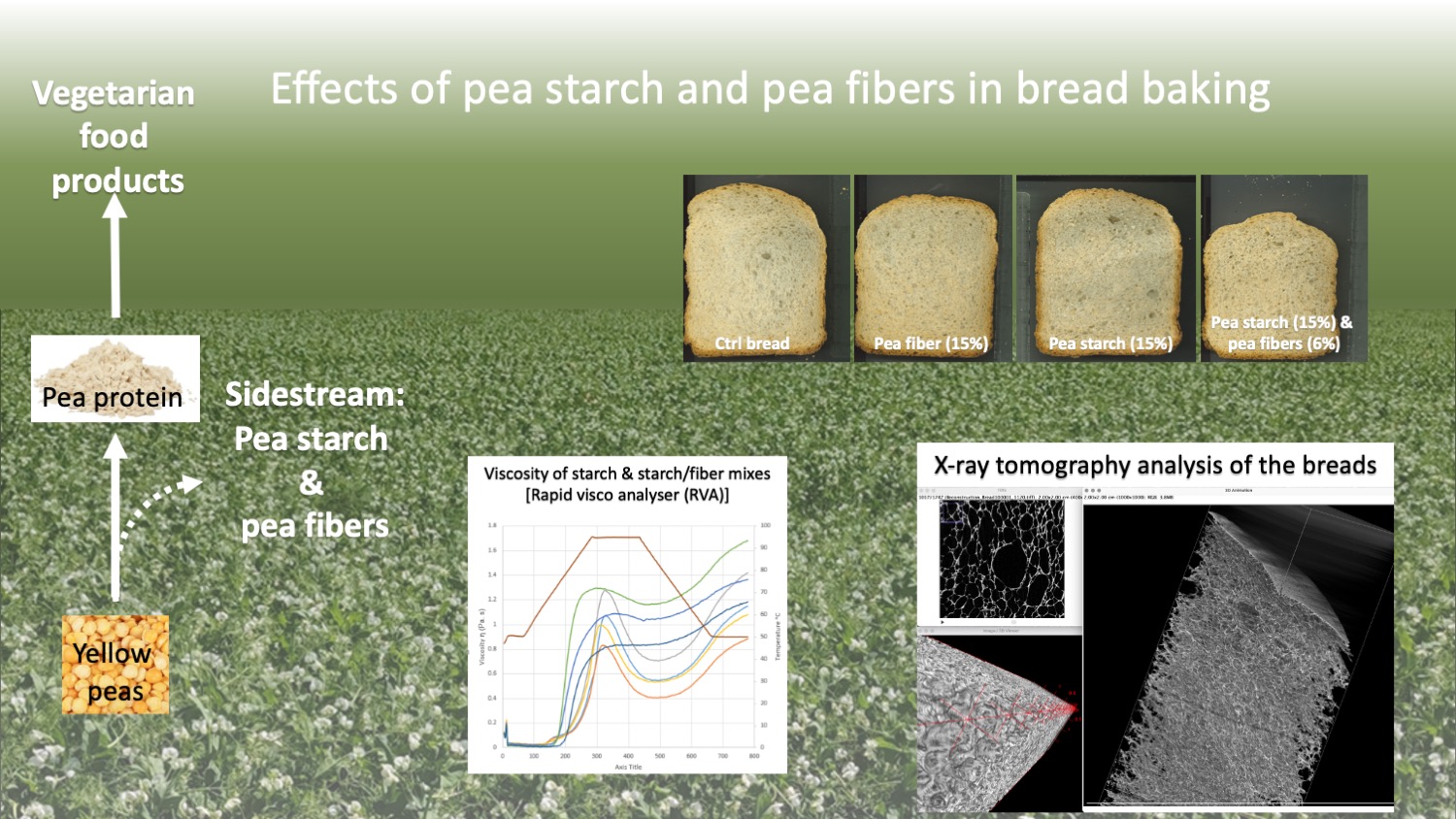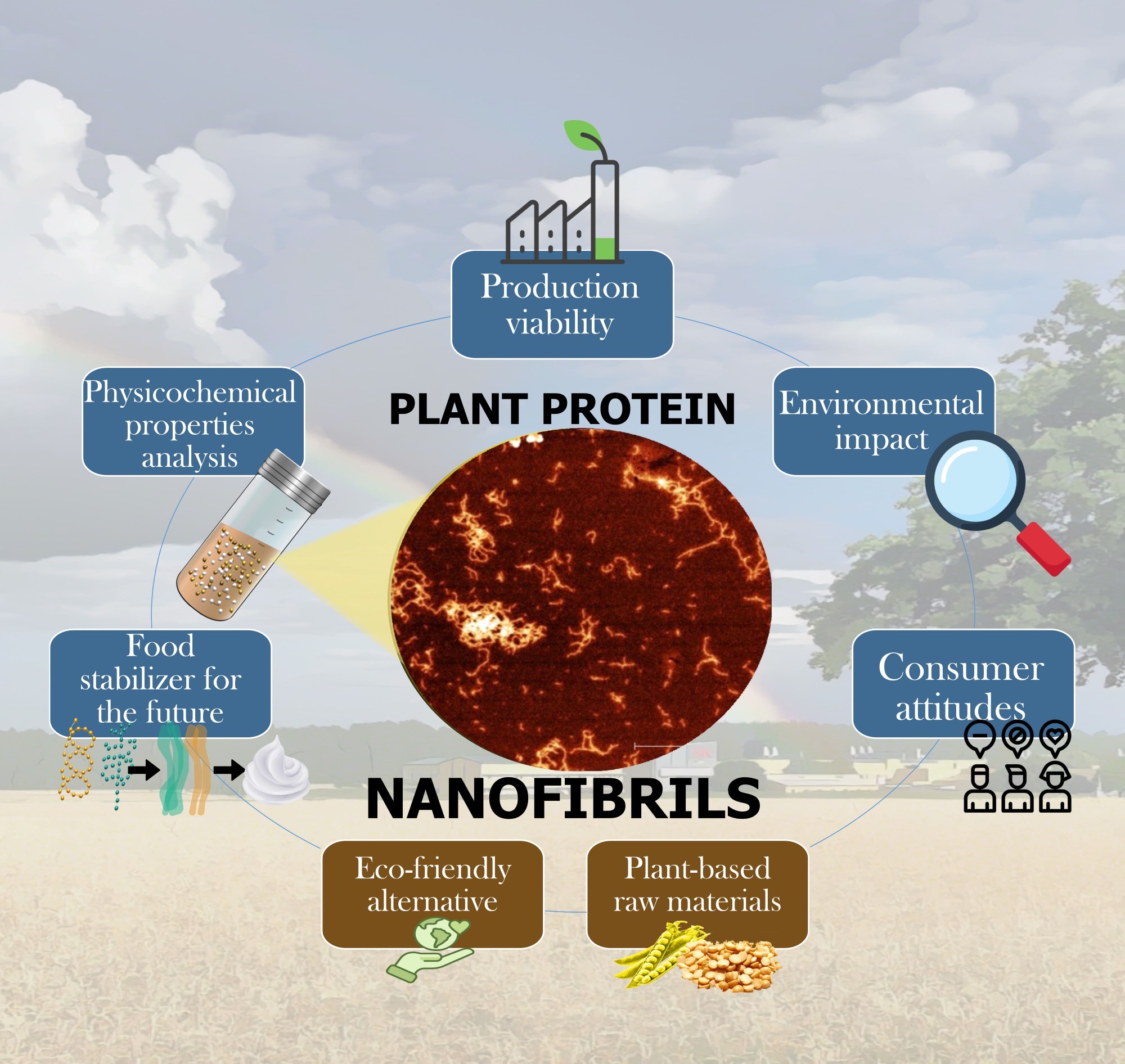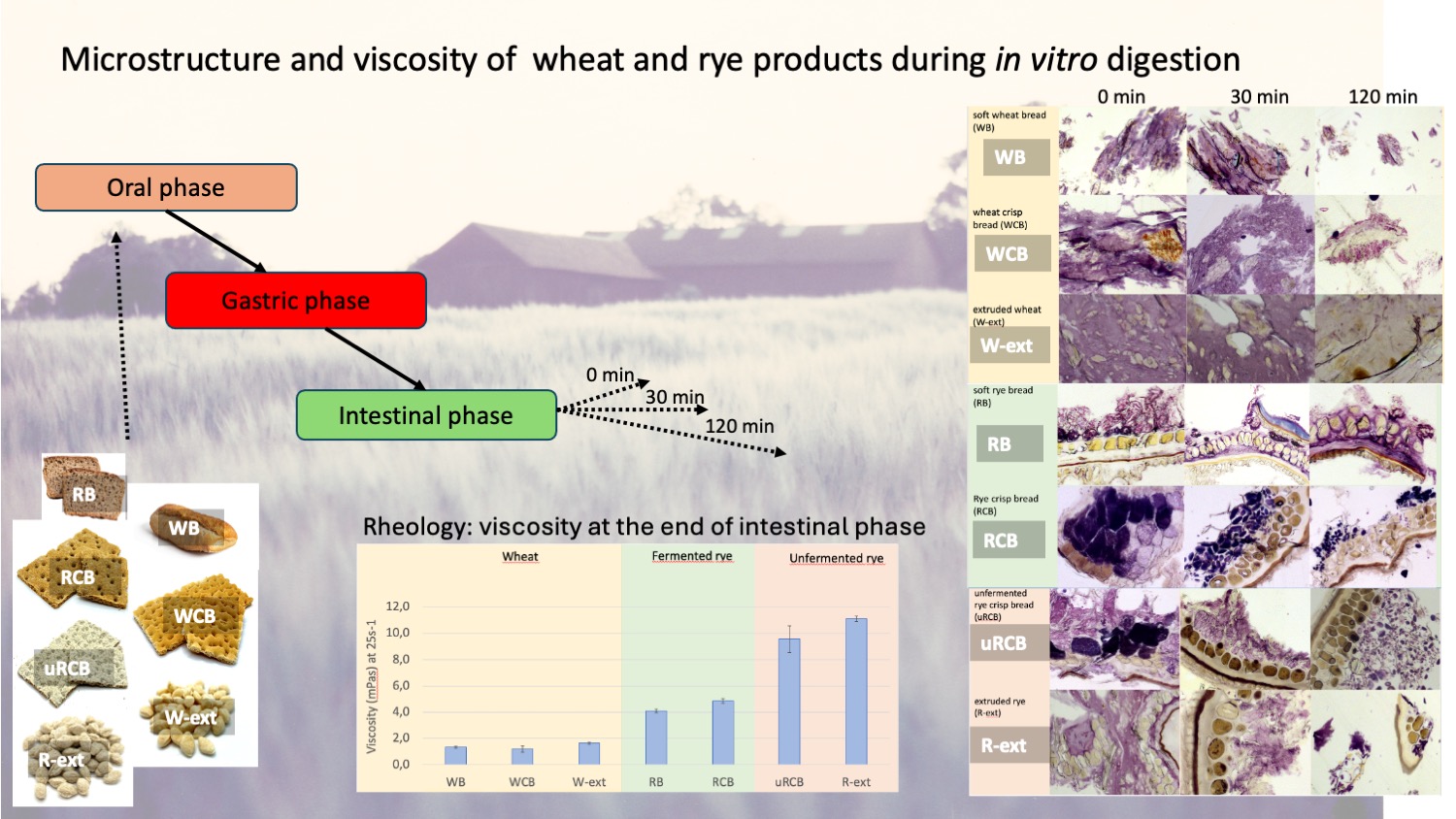
Plant-based Fermented food (Alejandra F. Castaneda)
Interest in the consumption of plant-based foods is growing, and in line with this, consumers have a higher demand for more sustainable, environmentally friendly, and nutritious foods. From a sustainability and human health perspective, this is a positive trend. Replacing soy with local alternatives generally means a shift to more sustainable production/consumption.
The project aims to establish a relationship between processing (heat treatment and fermentation) and the nutritional and sensory quality of a product from local raw materials. In this project, a tempeh-like product with high consumer acceptance will be developed from locally grown faba beans in combination with oats to optimize the amino acid composition. Specific aims:
- To screen and identify microfungi- zygomyceteous filamentous fungi and yeasts- that can be used for faba bean- and oat- fermentations
- To generate prototypes of tempeh using consortia of appropriate microfungi, determine the impact of using different microbial consortia and different mixtures of faba beans and oat.
- To investigate microstructure, rheology, biochemical and mechanical properties of the prototypes
- To evaluate consumer acceptance of the product
Update 03.2025
Faba beans (Vicia faba L.) and whole-grain oats (Avena sativa L.) are nutritious, protein-rich, and sustainable crops well-suited for cultivation in the Nordic region.
This research is part of European project HealthFerm; at SLU we have the focus to improve the sensory, nutritional and in vitro digestion properties of these ingredients through a two-step fermentation process. First, the faba beans and oats are soaked with Lactiplantibacillus plantarum, a beneficial bacterium known for enhancing flavour and digestibility. This is followed by solid-state fermentation using Rhizopus microsporus to develop tempeh-like. Tempeh products has the potential to be nutritious plant-based alternative.
Key Findings
Standardized Production – Developed faba & faba-oat tempeh with consistent quality. Read more: https://doi.org/10.3390/fermentation10080407
Sensory Study – 107 participants (Sweden & Finland) rated faba-oat tempeh moderately to positively (umami, sour, nutty, mushroom-like).
Soaking with L. plantarum – Enhanced nutty, cheese-like, sour, and meaty notes; Sensory evaluation and GC-MS confirms volatiles compounds.
Nutrition & Digestibility – High protein digestibility, fewer anti-nutrients & sugars → Better nutrition.
Read more: https://www.slu.se/en/ew-news/2024/11/tempeh/ & https://supermiljobloggen.se/nyheter/intervju/hallbara-livsmedel-mot-slu-forskaren-alejandra-castaneda/
More information about project: https://www.healthferm.eu/
More updates: https://www.linkedin.com/company/healthferm/
https://www.linkedin.com/in/alejandra-fernandez-castaneda-7956b9195/














